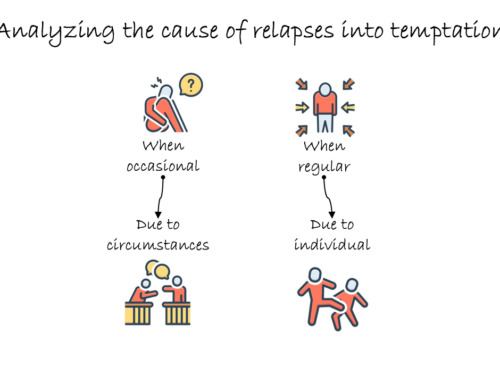Recovering alcoholics are warned to stay away from things that trigger their desire for alcohol. If, for example, between their office and home lies a bar they had frequented earlier, that bar is a trigger they need to avoid. Even if such avoidance requires them to take a longer route, the time they invest in such caution would be much lesser than the time wasted if they relapsed.
The same principle applies when we battle our particular attachments. We need to introspect and identify the things that trigger our desires. Then we can plan how to avoid or at least minimize our exposure to those triggers. Pertinently, the Bhagavad-gita (03.41) stresses that the battle against lower desires begins with regulation of the senses. Of course, regulation alone is not enough – we need to use regulation as a launching pad for intelligently raising our consciousness to the spiritual level, thereby relishing higher happiness (03.43).
However, we can’t access spiritual happiness if our consciousness stays consumed by the inner tug-of-war over fulfilling or resisting worldly desires. Yes, we need to ultimately transcend such desires, but we are most likely not that pure at present. Even if we are strong enough to not be triggered normally, the trigger may catch us in a weak moment. And even if we resist a temptation, still we lose valuable mental energy in the battle. Of course, in today’s temptation-filled world, we can’t entirely avoid exposure to all triggers. But due caution in avoiding unnecessary exposure can free our mental energy for focusing on higher purposes.
When we complement caution with devotion, we learn to focus on Krishna, the source of all purity and joy. By steadily focusing on him through inner contemplative remembrance and outer constructive service, we become increasingly purified, contented and delighted.
To know more about this verse, please click on the image
Explanation of article:
Podcast:



It is very difficult to stay away from our triggers that motivate us for bad things